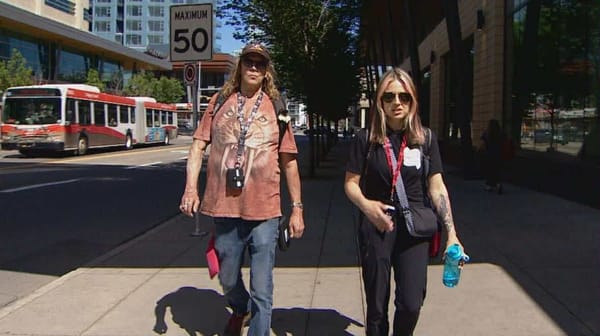Laundering bad ideas through higher learning
The UCP make frequent use of a small network of real and fake academics to simulate rigour on regressive drug policy. This time, they brought in Dr. Keith Humphreys.

This piece was initiated by drug policy experts with a focus on Alberta, who carried out the majority of the annotation found in the document. They are remaining anonymous.
In advance of Alberta’s 2022 Select Special Committee to Examine Safe Supply, Simon Fraser University’s Dr. Julian Somers was commissioned by the United Conservative Party to write a comprehensive review on the state of research into safe supply. Or, as he prefers, ‘public supply of addictive drugs.’
Needless to say, the purpose of the report wasn’t to conduct a thorough review of safe supply for a balanced discussion in Alberta. It was eviscerated by more than 50 clinicians and academic experts on safe supply, who cited its “critically low quality,” but Somers stood by it. And the UCP Committee ran on its steam.
Somers no doubt made some friends along the way, but this public self-own reflected terribly on Simon Fraser.
Inexplicably, researchers keep trading in their academic integrity for lunch and a mic at the next UCP pep rally. In the latest instalment, the Stanford Network on Addiction Policy (SNAP) tries its hand.
Co-chaired by Dr. Keith Humphreys, the SNAP is a mishmash of politicians, lawyers, researchers, doctors and PR people. Among them is Blair Gibbs, former special advisor to Boris Johnson and first author on this current report.
Entitled “Canada’s Health Crisis: Profiling Opioid Addiction in Alberta and British Columbia,” the report manufactures consent for Alberta’s defunding of harm reduction by artificially pinpointing the epicentre of the drug poisoning crisis squarely in Vancouver's Downtown Eastside.
The authors have no real credentials for this type of review, but I must point out Knife Crime Guy, whose CV runs the length of a clipped toenail. In case you were wondering where all that knife crime propaganda was coming from in London, some of it can be traced back to the Mayor’s office:

Dr. Humphreys, however, has a long history with the UCP. He’s a regular at Recovery Capital Conferences and presented to the Safe Supply Committee mentioned above. He was recently hired by the UCP to lead its Recovery Expert Advisory Panel where, big surprise, Rob Tanguay makes another appearance.
Humphreys was in Alberta for the Panel’s announcement in February. The same week, he presented some questionable data on the UCP’s harm reduction spending at the Alberta Recovery Conference — the one we protested.

The UCP manufactured consent for supervised consumption service closure with their widely panned review in 2020. They manufactured consent for safe supply restriction with Somers’ review in 2022.
This report is geared at smearing harm reduction more broadly and justifying Alberta’s abstinence model. This serves varied purposes, mostly carceral in nature.
So, to preempt the waving of this grade school-level report by UCP ministers, we thought a quick annotated response might be helpful. Feel free to use it for public advocacy or to build into a properly-synthesized academic response. It’s yours.
Key themes:
- Acknowledgement of extremely high death rates among Indigenous communities, but no context on Canada’s genocide
- Repeated framing of the crisis as a problem rooted in addiction rather than supply toxicity, without providing evidence
- Acknowledgement of unregulated drug supply toxicity as the leading cause of death, but no mention of offering regulated alternatives
- Elementary criminological analysis to position BC as the geographic centre of the crisis based on shaky data
- Repeated support for Alberta’s abstinence-focused approach, with no data to back this up
- Conversely, repeated insinuations that harm reduction measures have failed, while ignoring the considerable evidence in their favour
- Minimization of the reality that both Alberta and BC centre abstinence in policy, with cherry-picked analysis on spending or outcome evaluation.
Throughout the document, look for this icon to signify a section flagged for a response that you’ll find in a nearby margin:

Without further ado, the annotated response. Click ⬇️

Canada's Health Crisis Annotated1.49MB ∙ PDF fileDownloadDownload





